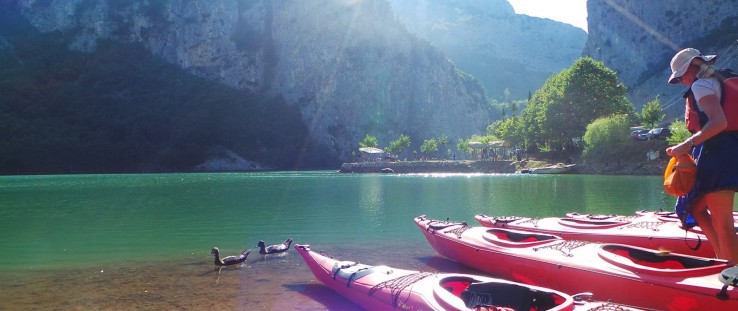 Journalists kayaked on Lake Shkopet in northern Albania during Adventure Tourism Week in 2014.
Journalists kayaked on Lake Shkopet in northern Albania during Adventure Tourism Week in 2014.
 Journalists kayaked on Lake Shkopet in northern Albania during Adventure Tourism Week in 2014.
Journalists kayaked on Lake Shkopet in northern Albania during Adventure Tourism Week in 2014.
When USAID first started supporting the development of tourism in Albania in 2003, fewer than 300,000 international travelers visited the country annually, despite the country’s tourist-friendly mountains and sandy beaches. Today, tourism accounts for 25 percent of the country’s GDP, with more than 4.1 million tourists visiting in 2015 alone. The sector is one of the most important sources for employment and small business growth in the country.
Recognizing the potential of Albania’s tourism industry to promote economic growth and elevate the standard of living, USAID assistance in the past decade has focused on helping Albania market and promote its unique mix of natural beauty, wild lands and historic culture.
To continue to attract tourists, USAID has worked with the Government of Albania, local leaders, hotel owners, restaurateurs and other industry leaders to ensure a high-quality experience for visitors. Local travel operators have also taken the initiative, with USAID’s support, to lay the foundations for tourism development, shape the legal framework and create quality standards that will define Albania’s tourism sector in the future.
“When I opened my travel agency in 2001, I was among the very first operators to consider incoming tours; I wanted to show Albania to the world,” said Sonia Popa, 57, director general of tourism development in the Ministry of Economic Development, Tourism, Trade and Entrepreneurship and the former owner of Guliver OK shpk travel agency in Tirana.
“There were few hotels, and none [had universal standards]. There were few tour guides, and none of them being trained properly and professionally, and really no understanding by the government or people that tourism was important,” she said. “There was nothing remotely near a hospitality industry, but I felt it was important for Albanians to know their country and slowly foreigners began to come.”
Popa recognized that the lack of universal standards could hurt Albania’s budding tourism industry. In 2003, she began advocating for change with a loose association of tour operators, hotels, transportation businesses and public relations experts. They discussed what travel opportunities were available and what could be done to build the industry.
An opportunity presented itself in 2006 when Popa and five others were selected to attend a training workshop organized by the World Federation of Tour Guide Associations (WFTGA)—a trip they could not afford—to be exposed to international standards. USAID sponsored their travel, and less than a year later, the group established the country’s first and only National Association of Tour Guides, a WFTGA-affiliated group that provides training and advocates for quality standards and certification, bringing the country another step further on its journey toward a robust tourism industry.
“Although there was a definite need when we began, people and businesses wouldn’t at the time pay for this training and so support from donors like USAID was very much needed,” she said.
In 2008, the government adopted a law deregulating the tourism industry. According to Popa, “At the time, anyone who could speak two words of English thought they could give a tour. It was a difficult period for professionals.” Because of this change, USAID’s projects from 2008 to 2013 supported industry-led activities to increase quality standards and advocacy efforts to reform legal standards.
USAID also developed partnerships that improved professional standards in Albania’s hospitality sector. The American Hotel and Lodging Educational Institute (AHLEI), the preeminent leader in hospitality certification in the United States, offers certified hospitality and training programs in cooperation with a local NGO, Destination Management Organization.
Popa was one of 15 participants who passed AHLEI’s certification exams. Of the 15, four are now working in the Economy and Tourism Ministry.
“There has been an evolution in consciousness on the importance of standards in tourism, and professionals are now willing to invest in their staff training as they want to protect their jobs and have fair competition within the industry,” she explained.
Popa and the group of certified trainers advocated for changes in the new tourism law, adopted in October 2015, that requires hotels and other accommodations under the new star rating system to have a percentage of their staff certified and licensed.
“USAID provided practical training that has been directly applied and all of this knowledge is being used at the ministry to fundamentally transform the industry,” she said. “These laws will allow us to have hotel classification, statistical data and information to better inform policy, certification of tour guides and licensing of tour operators.”
According to Popa, there is a pressing need to develop plans that control growth, protect the environment and preserve Albania’s cultural and spiritual values.
“We are not just about increasing the number of tourists, but about protecting Albania’s resources for future generations. Now is a crucial moment. We do it the right way or we ruin it,” she said.
Geotourism and Beyond
In cooperation with National Geographic, USAID sponsored an initiative called the Western Balkans Geotourism MapGuide to help Albania and other countries in the region ensure a more authentic, engaged experience that also enhances the culture, land and people. This approach is also called “geotourism.” The initiative is also meant to encourage the countries in the Western Balkans (Albania, Bosnia and Herzegovina, Kosovo, Macedonia, Montenegro and Serbia) to increase competitiveness by marketing themselves as a region with prime tourist destinations.
There is also the Western Balkans Geotourism Stewardship Council, a part of the Geotourism MapGuide project. Nancy Tare, who has worked for the last three years as the country director for this project in Albania, says: “I look forward to the Western Balkans being marketed in the way the tourism industry in the U.S. markets the Caribbean, Latin America or West and East Coast destinations. Geotourism is the right approach for countries in the Western Balkans but more work needs to be done to realize its potential.”
The region is taking a step in that direction with the 2,000-kilometer hiking trail, Via Dinarica, that winds through eight countries in the Dinaric Alps.
Tare, who has also managed Albanian tour company OurOwn Expeditions for the past 12 years, hopes that the Albanian tourism industry can continue to grow through improved standards and USAID’s continued support. She added: “Our success is return visitors: Would they come back and what are they tweeting?”
In partnership with the Government of Sweden, USAID will support nine to 11 projects over the next five years, all of which focus on local solutions to local needs. The first project—launched in June 2016 and implemented by a local NGO, the Center for Economic and Business Education—will create a tourism investment and finance fund to provide financing to small hospitality and tourism-oriented businesses.
Related Links
“What's Not to Like?”
“[T]he outside world has heard remarkably little about Albania, but in fact it’s made a surprising recovery [from economic collapse]. Travel is easy, there’s lots to see, it’s very cheap and it’s also astonishingly safe. What’s not to like?” That winning review came from Tony Wheeler, founder of Lonely Planet Publications, who visited Albania in 2006 for the first time as part of a USAID-supported media tour. In 2014, USAID supported Adventure Tourism Week, a nine-day tour of foreign journalists and international tour operators through Kosovo, Macedonia and Albania aimed at building all three countries’ adventure tourism industries, which showcased Albania to National Geographic, Whole Journeys, Lonely Planet and Yahoo.








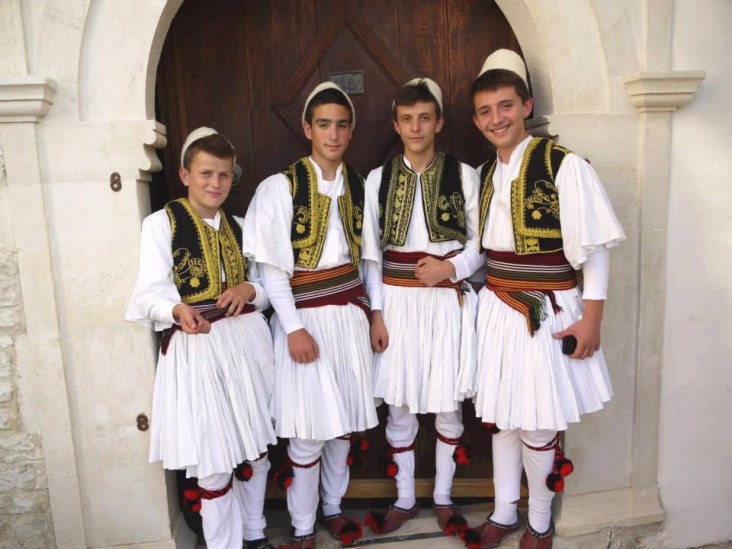
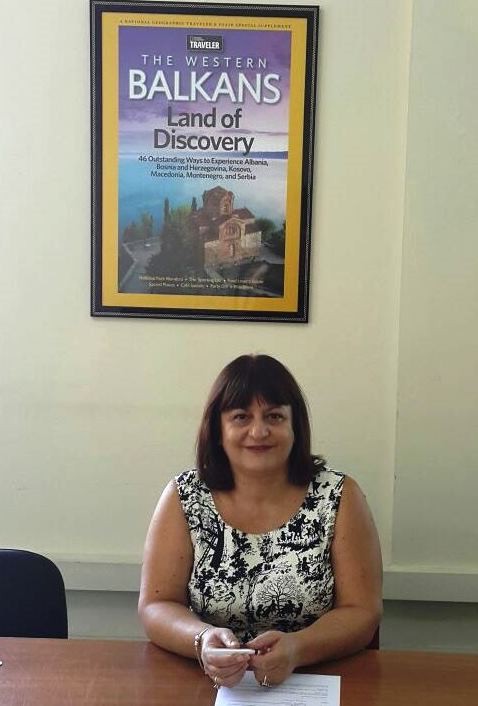
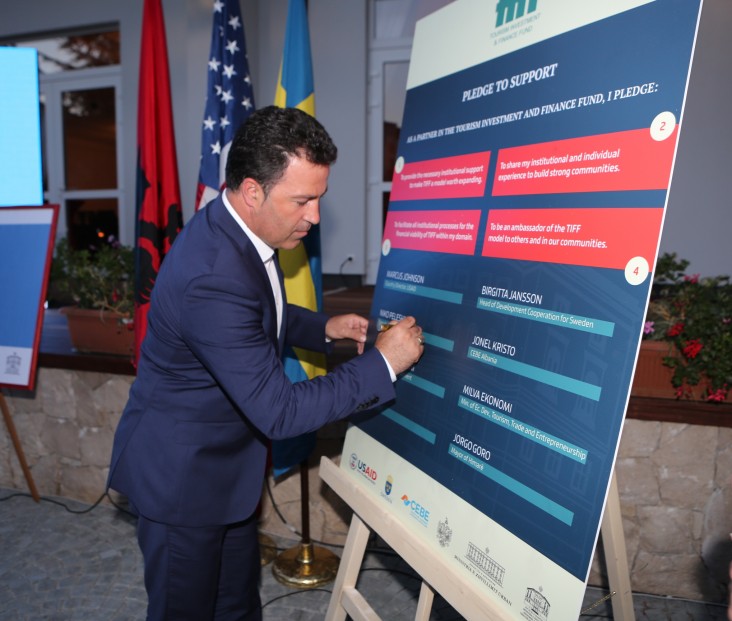

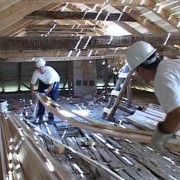
Comment
Make a general inquiry or suggest an improvement.